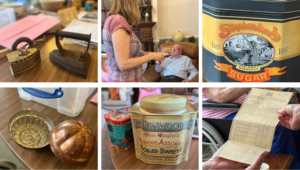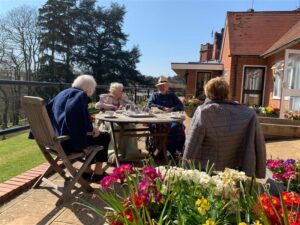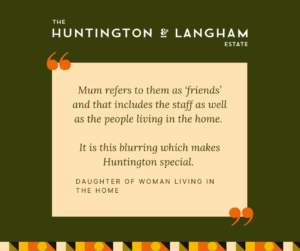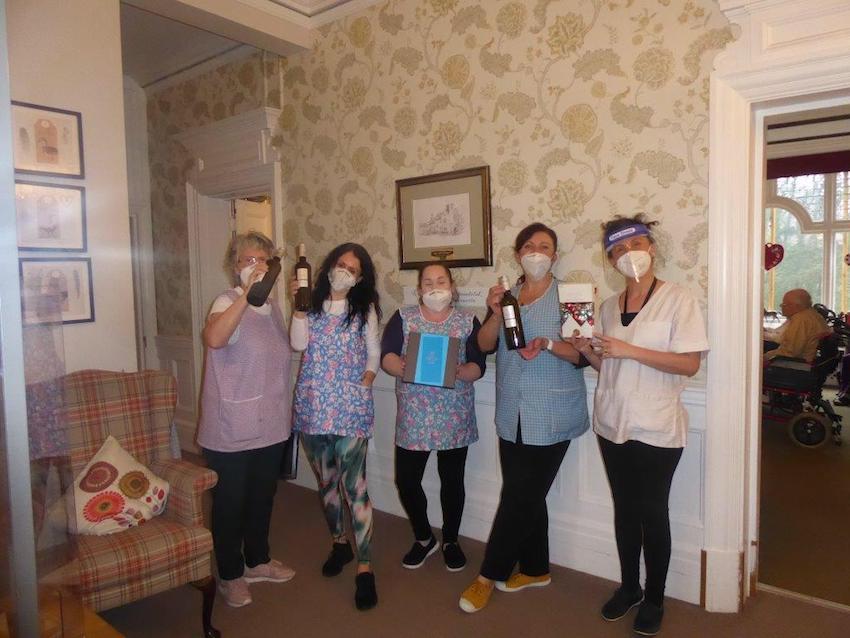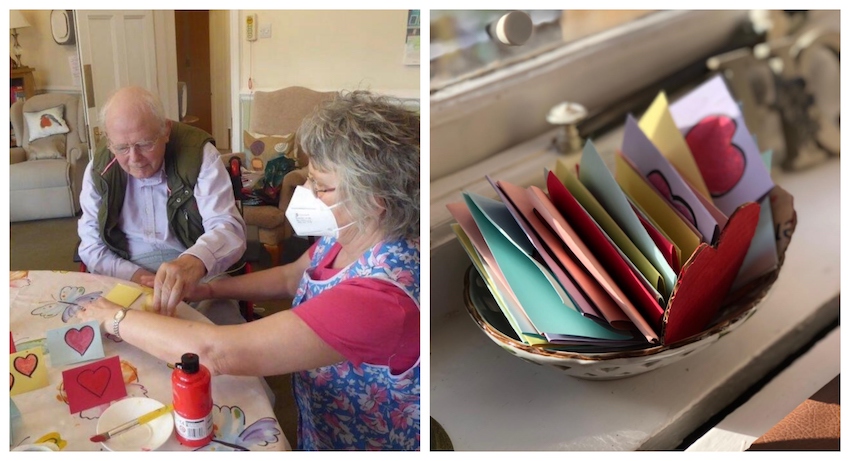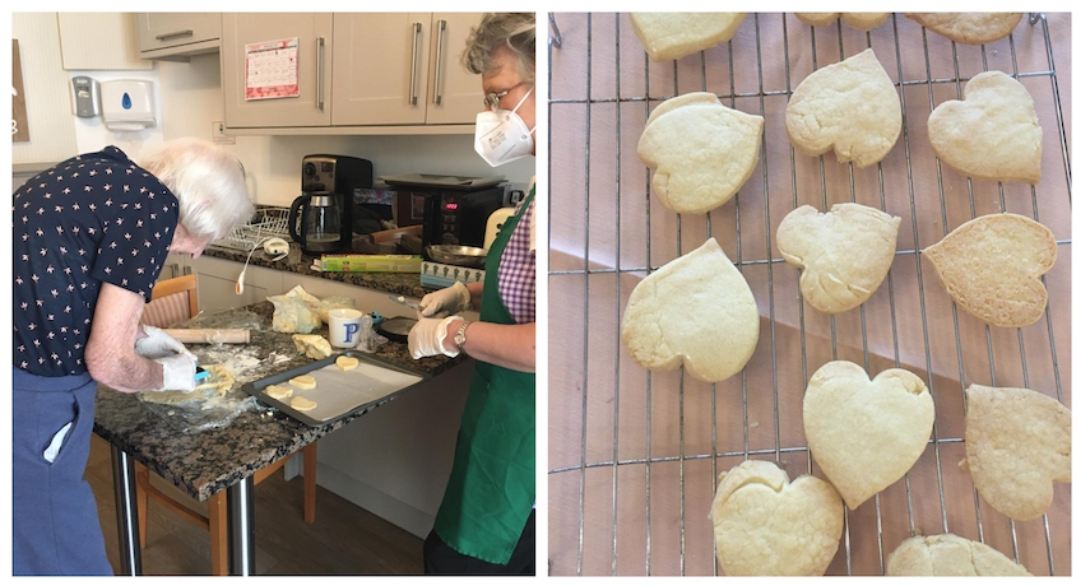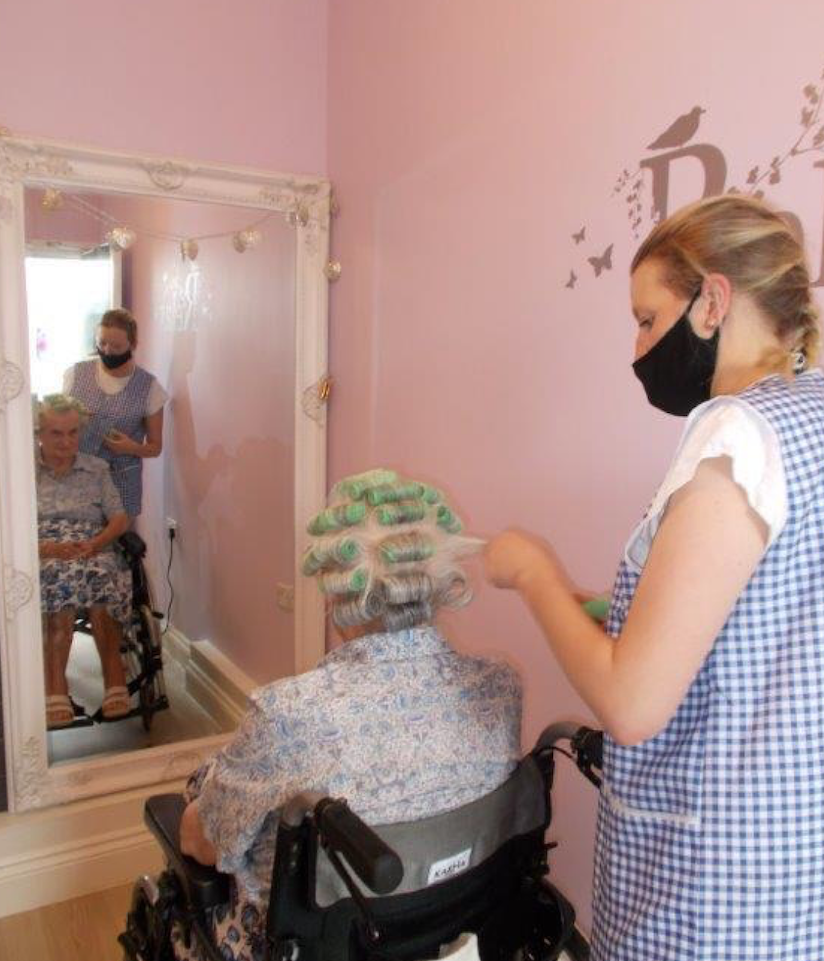With the rising cost of living and fuel prices set to reach over £4,200 a year, It is not surprising that families are worrying about how older relatives and friends are going to cope during the winter months, in particularly those who need to keep the heating on longer during the day to stay warm.
With the demand for Residential Care on the rise, here at the Huntington and Langham Estate, we are seeing a trend of more enquiries for last minute emergency admissions into our homes.
We will always do our utmost to accommodate all requests as quick as possible, but there may not be a room available straight away and others on the waitlist, along with the need to complete the required steps and paperwork to meet the required regulations.
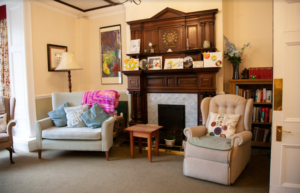 If you think that there is potential a family member could benefit from additional support over the winter months, require respite care or is considering making the move into Residential Care, our advice is to start planning now.
If you think that there is potential a family member could benefit from additional support over the winter months, require respite care or is considering making the move into Residential Care, our advice is to start planning now.
How to choose the right type of care.
At The Huntington and Langham Estate, we adopt a holistic approach in both our homes and prioritise giving every member of our team and our residents a meaningful day every single day. For a selection of our recent resident activities take a look at our latest news

As there are a number of alternative styles of Residential Care, to consider we have covered the options available in our guide to How do you choose the right type of care home?
Is your loved one living with dementia?
As an award winning specialist butterfly home for dementia care, we provide family orientated dementia care and are here to help when the time comes that the progression of their symptoms means it is no longer safe for them to continue living at home.
Our butterfly approach to dementia care is proven to make a huge difference to the quality of life of a person living with dementia and in our article on the website share 5 benefits of seeking professional dementia care.

For anyone considering a move into a specialist home for dementia care, we offer advice on How to choose the right dementia care home for your loved.
What you can expect when contacting the team at Huntington & Langham about Residential Care
Whether contacting us here at the Huntington and Langham Estate by email or a phone call, our priority from that first conversation is to learn more about your circumstances, personal situation and needs.
It may feel that we are asking lots of questions, quite early on, but as we know everyone’s situation is unique, the information you share means we can discuss with you the support we can offer.
The benefits of coming to visit the Estate and take a tour of our homes.
Whenever feasibly possible for your family, we will recommend that you come and visit us at the Estate, to get a true sense of our home and approach to care. We can take you on a tour of the facilities, look at our available rooms and potentially meet some of our residents.
This is also a great opportunity for us to answer any questions you have, to help you make an informed decision about which home is best for your circumstance, provide reassurance about living in our home and talk about menu choices, activities and funding your stay.
If you are keen to take the next steps to becoming a resident, we can detail what will happen should you want to move in and explain about the pre-admission assessment.
What is a pre-admission assessment?
One of the requirements of the Care Quality Commission is that for all new residents we complete an assessment with one of our trained staff.
This is nothing to worry about, we just want to make sure we can provide the best level of care for your situation, by asking a number of questions which help us to understand the personal needs of anyone who wants to move into one of our homes.
There are no right or wrong answers, it is simply how we collect the information we need to create a personalised care plan and make sure we are able to provide any specific support or care each person requires. As well as health information we cover topics such as dietary requirements, hobbies,
We can complete the form face to face, on a virtual call or over the phone, however it works best for you and your family.
Is Residential Care right for you?
Making the final decision to move into a care home for the first time is always a difficult one with many emotions for all involved and deciding if residential care is right for you and your family can take time to consider.
If you are unsure about the benefits of a move into a residential home, in our article 5 ways residential assisted living can improve quality of life we share the feedback from our residents and their families who have taken the step to join us on the Estate.
We would love to invite you to visit our beautiful estate. Please contact us via the web form or give us a call on 01428 604600 – one of our friendly team members will be happy to help you.


